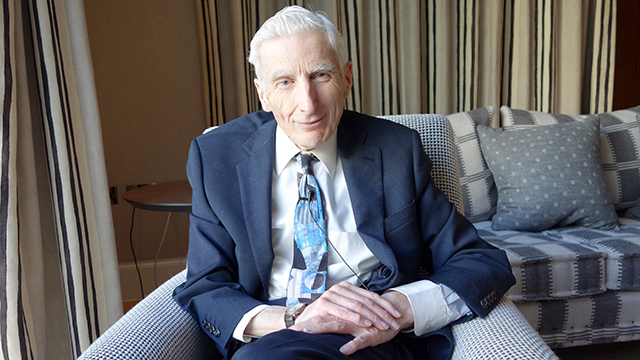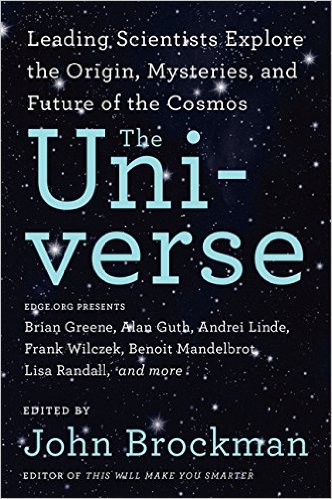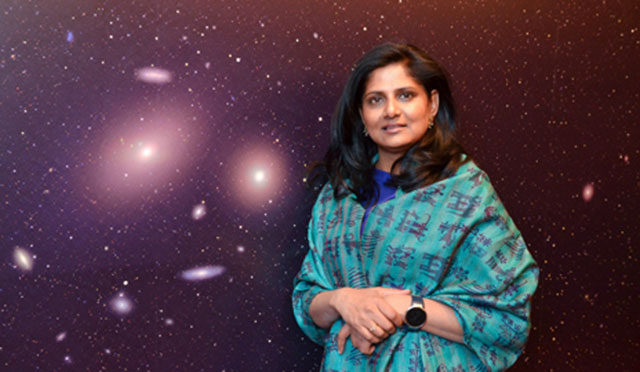It is definitely the golden age in cosmology because of this unique confluence of ideas and instruments. We live in a very peculiar universe—one that is dominated by dark matter and dark energy—the true nature of both of these remains elusive. Dark matter does not emit radiation in any wavelength and its presence is inferred by its gravitational influence on the motions of stars and gas in its vicinity. Dark Energy, discovered in 1998, meanwhile is believed to be powering the accelerated expansion of the universe. Despite not knowing what the dark matter particle is or what dark energy really is, we still have a very successful theory of how galaxies form and evolve in a universe with these mysterious and invisible dominant components. Technology has made possible the testing of our cosmological theories at a level that was unprecedented before. All of these experiments have delivered very exciting results, even if they're null results. For example, the LHC, with the discovery of the Higgs, has given us a lot more comfort in the standard model. The Planck and WMAP satellites probing the leftover hiss from the Big Bang—the cosmic microwave background radiation—have shown us that our theoretical understanding of how the early fluctuations in the universe grew and formed the late universe that we see is pretty secure. Our current theory, despite the embarrassing gap of not knowing the true nature of dark matter or dark energy, has been tested to a pretty high degree of precision.
It's also consequential that the dark matter direct detection experiments have not found anything. That's interesting too, because that's telling us that all these experiments are reaching the limits of their sensitivity, what they were planned for, and they're still not finding anything. This suggests paradoxically that while the overall theory might be consistent with observational data, something is still fundamentally off and possibly awry in our understanding. The challenge in the next decade is to figure out which old pieces don't fit. Is there a pattern that emerges that would tell us, is it a fundamentally new theory of gravity that's needed, or is it a complete rethink of some aspects of particle physics that are needed? Those are the big open questions.
PRIYAMVADA NATARAJAN is a professor in the Departments of Astronomy and Physics at Yale University, whose research is focused on exotica in the universe—dark matter, dark energy, and black holes. Priyamvada Natarajan's Edge Bio Page
THE EXQUISITE ROLE OF DARK MATTER
I'm a theoretical astrophysicist, working on what I think are some of the most exciting, open and challenging questions. The first is trying to understand the nature of dark matter, and the second question pertains to the physics of black holes. Part of my interest in these two questions, aside from the fact that we now have an enormous amount of data that can help us understand these very enigmatic objects in the universe, is that we have a standard theory—a theoretical model—that works extremely well.
This is a model of structure formation in which dark matter, which is the dominant matter component in the universe, is in the driving seat. It's the scaffolding in which all the first galaxies form, the first stars form, and so on. While we have this exquisite inventory and role for dark matter, we do not know what it is, what it's composed of, what kind of particle it is, when it was created in the universe, and so on and so forth. Similarly, with black holes; we know that they exist. They are real. There is one in the center of our galaxy, which is a few million times the mass of the sun. The one in the center of our galaxy is a dormant black hole. It's not doing very much at present, it was likely active in the past. We see in the early universe that there are massive black holes that are 1000 times, 10,000 times more massive than the one in the center of the galaxy that play a very important role in shaping the properties of the galaxy which hosts them.
What is the life-story of a black hole? How do they grow? How do they form, evolve, and then end up as dead black holes? This is an open question because we know that black holes feed on gas, but what we don't understand is precisely how the gas makes it onto this peculiar surface that all black holes have called the "event horizon." The physics, the astrophysics, if you will, or the details of the flow, are very poorly understood. Once again, these are both problems where we have a good, in fact, a rather specialized, detailed broad-brush understanding; however, the very nature of these objects remains unknown. The situation is very similar to that of dark matter that appears to be ubiquitous.






